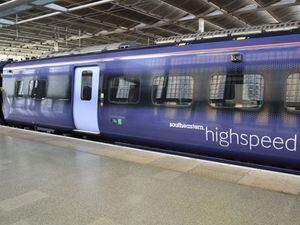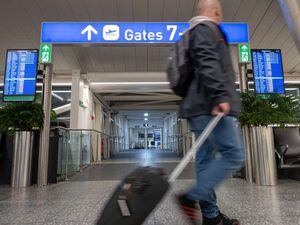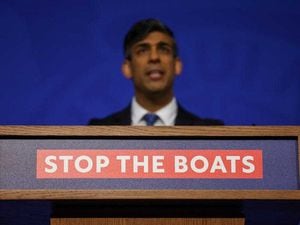More railway workers to be balloted for strikes over pay and jobs
TSSA members at Southeastern will vote in the coming weeks, threatening a long summer of travel chaos.

More railway workers are to be balloted for strikes in escalating disputes over pay and jobs, increasing the threat of a summer of travel chaos.
The Transport Salaried Staffs Association (TSSA) served notice to ballot hundreds of workers at Southeastern, saying it was demanding a guarantee of no compulsory redundancies, no unagreed changes to terms and conditions, and a pay increase which reflects the rising cost of living.
The ballot opens on June 23 and closes on July 11, so action could start from July 25.
Services will be crippled, with little or no sign of a last minute breakthrough to the bitter disputes.
The TSSA is also balloting hundreds of its members in NR, CrossCountry, East Midlands Railway, West Midlands Trains, Avanti West Coast, Northern, LNER and C2C in an escalating dispute across the railway.
TSSA general secretary, Manuel Cortes, said: “Our members at Southeastern are seeking basic fair treatment in the teeth of a crippling cost-of-living crisis.
“Rail workers were hailed as heroes in the pandemic and now they deserve a real terms pay rise which keeps pace with inflation, rather than shouldering the burden of the Tories’ economic meltdown.
“Our demands are simple – pay which reflects the times we live in, a deal which delivers job security, and no race to the bottom on terms and conditions.”
A Department for Transport spokesperson said: “The facts are clear: The median pay of rail workers in is £44,000, which is around 70% above the national average. Railway workers have seen above average salary increases over the last decade.
“The industry is offering daily talks to resolve the strikes. We continue to encourage the unions to take them up on that offer and negotiate a fair deal for workers.”
The TSSA has also served notice to ballot almost 500 workers at Great Western Railway (GWR) for strike action and action short of strike.
Voting starts on June 24 and ends on July, so industrial action could start from July 26.
A No 10 spokesman said: “It is in the hands of the unions to call off strikes next week.
“We continue to call on the unions to call them off. Obviously ministers remain close to the ongoing situation with regard to what are live discussions.
“But as we have made clear, we are not the employers in this case and we can’t intervene in the negotiations between rail companies and the unions.
“But what we want to see is unions get back round the table with their employer and call off the strikes next week.”





